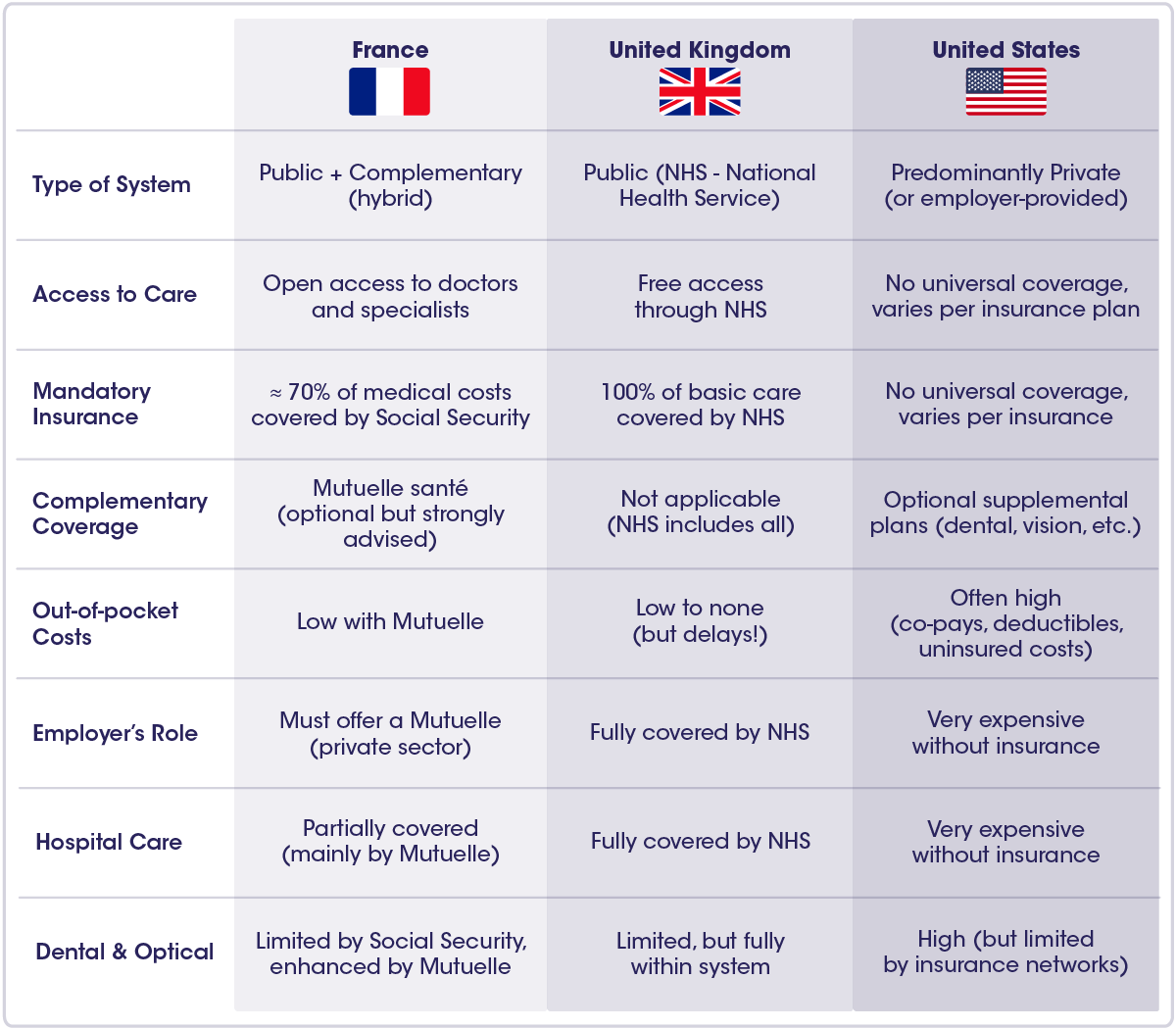As an employer, understanding the key components of the French healthcare system, especially the “mutuelle santé”, is essential to ensuring compliance and attracting top talent.

France operates under a dual system:
As an employer, your primary responsibility is linked to this second layer of coverage.
All employees in the private sector must be covered by a company-sponsored complementary health plan.
This obligation applies:
Exemptions: Certain cases, such as employees already covered by a spouse’s plan.

Since January 1st, 2016, employers are legally required to provide a mutuelle santé to all employees.
Failure to comply may result in URSSAF penalties and damage to your employer brand.
Employers must cover at least 50% of the cost of the complementary health plan. The remaining share is deducted from the employee’s salary.
This contribution is exempt from social charges up to a legal ceiling, making it fiscally advantageous.
Healthcare coverage is one of the most valued benefits in France.
Offering a high-quality plan, especially with strong coverage for dental, optical, and hospital care, is a powerful lever for recruitment and retention.

1. Choose a compliant plan with a certified insurance provider or mutual organization
2. Sign a collective agreement or unilateral employer decision to formalize the implementation
3. Inform employees clearly (welcome pack, intranet, HR onboarding)
4. Track contributions monthly via payroll (DSN reporting)
5. Keep updated on regulatory changes (coverage minimums, tax thresholds, etc.)
Tip:
Many insurers offer bundled packages that include not only healthcare but also life insurance, disability, and long-term illness coverage, commonly known as "prévoyance", another French social protection pillar.

To better understand the French healthcare system in an international context, here is a comparison with the United Kingdom and the United States:


Implementing a Mutuelle santé is not just a legal obligation, it is a strategic HR tool.
By offering the right coverage, you: